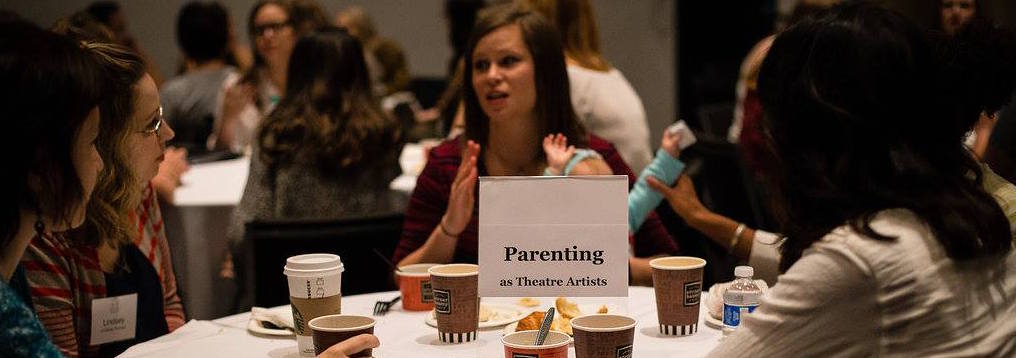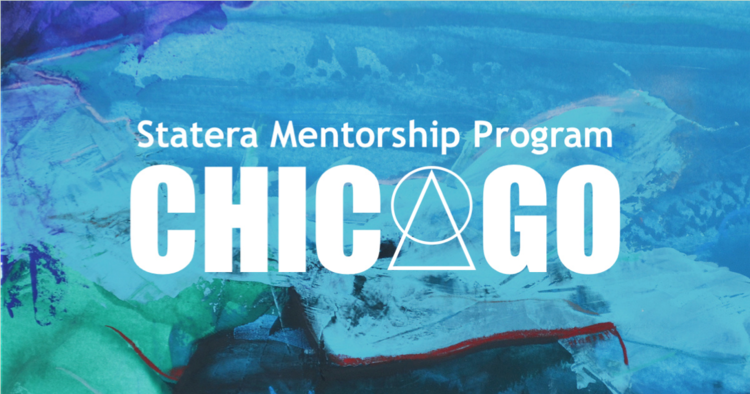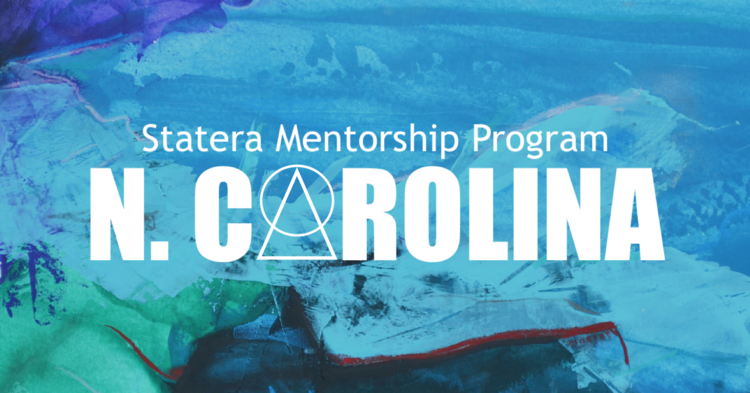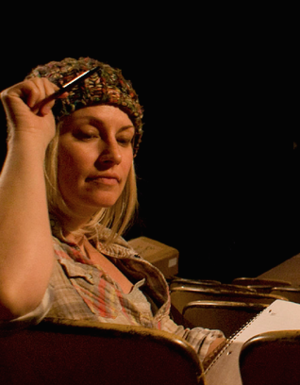From Shelly...
Hello everyone. I’m Shelly Gaza, Co-Founder and Director of Statera Foundation.
I am here in a room of like-minded people. Some of you have traveled thousands of miles to be here. Some of you have only traveled across town, yet you did so by carving out precious time in your work schedules, your family schedules, your almost surely too-busy life schedules. We’re here for several reasons - to talk about and explore various aspects of our profession, to meet and make connections with new people, to invigorate our minds and bodies, to see some great theatre, to enjoy the beautiful landscape - there are so many things that I’m looking forward to in the next few days!
But we’re also here because we know that something is wrong with the dynamic in American Theatre. Well, actually, there’s something very wrong with the dynamic in America, in the World. It’s complicated to be sure, but to try and put it simply, it’s this: women hold far too few positions, and certainly too few decision-making positions - that is, positions of power - and we are often paid less than our male peers when we do.
There has never been a comprehensive nation-wide study of employment and salary numbers for female theatre professionals. There needs to be, and this is one of the driving factors behind the formation of Statera Foundation. But more on that later in the conference! In the meantime, there have been some important regional studies that confirm what we have long suspected to be true in regards to gender imbalance:
• A 2015 study conducted by Valerie Weak and the Counting Actors Project, in collaboration with Martha Richards, Executive Director of WomenArts and Christine Young, Associate Professor at the University of San Francisco, found that, in the San Francisco Bay Area, where there are approximately 400 theatre companies and roughly 200 new plays are premiered each year, women represented only 27% of the playwrights, only 42% of the directors, and only 40% of the union actors.[1]
And when we travel east, the numbers even get worse.
• A 2009 study of gender equity in Chicago found that only 15% of theatres had a female Artistic Director, and only 10% had a female Managing Director.[2]
• Only 23% of the plays produced by Boston-area theaters in the 2013 - 2014 season were written by women. Men also outnumbered women by at least 2 to 1 in the fields of director, scenic design, lighting design, sound design, projection design, violence design, and music direction.[3]
• During the 2012-2013 Broadway season, only 10% of plays were by women playwrights and only 14% of the productions were directed by women.[4]
• And the only real national statistic we have comes from the U.S. Department of Labor and shows that less than 25% of positions in playwriting, directing, set design, lighting design, sound design, choreography, composing and lyric writing were held by women.[5]
When talking about gender parity, I often hear the rebuttal, “But it’s getting better - it might be slow going, but it’s better than it use to be.” But delving deeper into the numbers, we actually find the opposite to be true.
• In the San Francisco Bay Area, from 2011 to 2015, the jobs for female performers declined 1%, for female playwrights the number went down 3%, and for female directors the jobs declined a shocking 8%.[6]
• And this one will really get you: in the 1908 - 1909 Broadway season,12.8% of the productions on Broadway were by women playwrights.[7] As I mentioned a minute ago, the 2012 - 2013 Broadway season saw only 10% of its plays written by women. Not only are things not “getting better” but we’ve actually taken a substantial step backwards over the last century.
And there’s an alarming salary gap as well. The Counting Actors Project found that only 39% of the highest paying Equity contracts that included health benefits were given to women. And at these higher paying theatres in the Bay Area, only 37% of the productions were directed by women, and only 23% were written by women.
In this room, we’re already aware of this inequality. We’ve experienced it ourselves, or seen it in the theatres where we work, or see our partners and spouses deal with it as families try to make ends meet in an industry that continues to shut doors on its female employees. And it’s maddening, and it’s unfair, and it’s wrong.
But this morning, I don't want to talk about gender parity in terms of morality or fairness. I want to talk about why Statera’s mission, centered on achieving gender parity and pay equity for all women in theatre, isn’t really about women. It’s about the future health, indeed the future survival of American theatre.
As long as I have been a “serious” theatre person - so, let’s say since the early 90’s when I was a college theatre major - I have been aware of the conversation about the dire state of live theatre. That the audiences just aren’t coming anymore. That the ones who do are getting older and older, and there are no younger audience members taking their place. That theatre fails to attract the attention and interest of a society with an increasingly short attention span and a determination to stay home and consume their entertainment from the comfort of their couches. And that if all this continues on its present course, there will be no “Theatre” for any of us - not for those that want to see it, and certainly not for those of us who want to make a living at it.
• The National Endowment for the Arts’ survey of public participation in the arts breaks out figures collected by the U.S. Census Bureau. It found that in 2002, 17.1% of the U.S. population had attended a musical; in 2008, 6 years later, it was down to 16.7%, and in 2012, it was down to 15.2%. The drop is even more significant for plays, starting at 12.3% in 2002, and sliding to 8.3% in 2012.[8]
• NEA’s research director noted that attendance at plays has been down consistently since 1992, and adds that in the 2012 numbers, there were even worrisome dips among some of the theatre industry’s target demographics, including 55 to 64-year-olds and audiences who have reached high levels of education.[9]
This worries me, and has worried me for over 20 years. I remember my college professors talking about it, and when I was just starting out I remember the older actors talking about it, and now I’m talking it. I’m worried that, to most Americans, theatre just isn't relevant. It isn’t interesting. It’s too expensive - but that’s probably a conversation for another time! Most people don’t want go to the theatre. And the question remains, how do we change their minds? How do we sell more tickets? How do we build audiences? How do we bring younger people to the theatre? How do we revive, indeed resuscitate American theatre?
So here I am, standing before a room full of people who agree that gender parity is important, representing an organization for women in theatre, and so it’s probably no surprise that I think the answer to this problem in American theatre is Women.
Marsha Norman wrote an article in 2009 for American Theatre Magazine that Melinda and I find ourselves often quoting. The title of the article is “Not There Yet,” and in it she said, “A theatre that is missing the work of women is missing half the story, half the canon, half the life of our time. That is the situation we have now.”
She’s right. This quote was accurate in 2009, and unfortunately it’s still accurate 6 years later. And as long as this persists, we are only trying half of a solution. And this problem of the impending demise of American theatre is too big to be solved by only half-trying. By shutting out half the voices and talents, we ignore an entire half of the potential solution.
But Heads of Theatres site significant road blocks to hiring more women. I often hear them say that there just aren’t enough qualified female applicants in the labor pool. But we’re graduating women from American theatre training programs at the same rate - if not a greater rate - than we are men. And the Kilroys list, published annually, sited 52 new recommended plays by female and trans playwrights this year. The women are there. Those doing the hiring just need to open their eyes, and their minds, to the talent and skill standing right in front of them.
Theatre Executives also say they’re only following the demands of their audiences. That if it were up to them they’d produce lots of plays written by women, full of interesting and dynamic female characters, designed by innovative female designers - but that they just can’t. People wouldn’t buy tickets, and the theatre would fail.
But here’s the thing - theatre is failing.
I don’t watch Dr. Phil very often, but I have seen his show enough to know that one of his favorite things to say is, “How’s that workin’ for you?” And that’s my question to the decision-makers in American theatre: “How’s that workin’ for you?” You choose seasons that are predominately written by, directed by, starring, and designed by men and your theatres are failing. So I guess the biggest question of all is this: “What do we have to lose?” I’m not talking about taking anything away from men, I’m talking about saving American theatre for all of us.
And I’m making this sound like some kind of Hail Mary Pass. But it isn’t. Women sell tickets, and women buy tickets, and there are numbers to back this up as well.
• A study conducted by Princeton researcher Emily Glassberg Sands found that Broadway plays written by women earn on average 18% more than those written by men, even when the data are controlled for the type of play and corrected for massive failures and for whopping successes like Wicked, whose book was written by a woman. Plays by women sell on average 3,538 more seats per week than do those written by men.[10]
• In their study of audience demographics, The Broadway League found that in the 2013 - 2014 season, 68% of the audiences were female. And for Broadway touring productions, the audiences were a whopping 71% female.[11]
Plays by women sell better and more women buy theatre tickets. So why the resistance to putting our resources and focus toward where the money is? This seems like basic business sense. So what’s the hold up? I don’t know. I mean, I kind of know - it’s deeply rooted in our society and often times it’s unconscious and unintentional, but it’s the reason we gather and talk and plan and connect. We, the Statera community. Because, like Marsha Norman said, we’re obviously not there yet.
This is why Statera Foundation for Women in Theatre isn’t only for and about women. It’s about women and men together agreeing that, for a whole host of complex reasons, the dynamic of male-centric and male-dominated theatre is what currently exists, but that it needs to shift, it needs to equalize. And it needs to happen while there is still time to bring live theatre back to life.
I’d like to close with a quote that Marsha Norman also sites in her article. It was written by Nicholas Kristof for the New York Times. In this article, he was speaking about a global need for an equalization of the power dynamic, but it speaks deeply to me here in my little corner of the world as well. "The world is awakening to a powerful truth," he wrote. "Women and girls aren't the problem; they're the solution.”
I want to thank you for making time in your lives to be here this weekend, and for joining the Statera community. Over the next three days, we will connect with one another so that we can empower and plan - for ourselves individually, as well as for all women in theatre, as well as for everyone in theatre. Thank you.
[1] “Not Even - A gender analysis of 500 of San Francisco/Bay Area theatrical productions from the Counting Actors Project 2011 - 2014” by Valerie Weak
[2] Chicago Gender Equity Report, 2010
[3] “Theater Survey Puts a Number on Gender Disparity”, The Boston Globe, Terry Byrne, June 10, 2015
[4] “Women on Broadway: New Study Reveals Grim Statistics” by Tim Kenneally, TheWrap, February 26, 2014
[5] Marsha Norman, “Not There Yet”, TCG 2009
[6] “Not Even - A gender analysis of 500 of San Francisco/Bay Area theatrical productions from the Counting Actors Project 2011 - 2014” by Valerie Weak
[7]Broadway’s Glass Ceiling” by Theresa Rebeck, The Guardian, September 2008
[8]http://variety.com/2013/biz/news/legit-theater-audience-dwindling-1200827636/
[9] http://variety.com/2013/biz/news/legit-theater-audience-dwindling-1200827636/
[10] Marsha Norman, “Not There Yet”, TCG 2009
[11] http://www.broadwayleague.com/index.php?url_identifier=the-demographics-of-the-broadway-audience and http://www.broadwayleague.com/index.php?url_identifier=new-the-audience-for-touring-broadway-a-demographic-study
From Melinda...
Good morning.
I am Melinda Vaughn, Co-founder and Executive Director of Statera Foundation.
We just heard Shelly talk about the problem of gender imbalance in the theatre, and of how finding a solution serves all of us. I want to talk to you specifically about Statera Foundation as a solution.
Statera directly serves any one who identifies as a woman professional, in or training to be in the theatre. That means we serve and take interest in creating gender balance and meeting the needs of theatre women from top to bottom and all around. From Board, who often determine executive leadership; executive leadership who determine season selection, and management; management who determine directors, crew chiefs, designers and choreographers; and the artists and technicians; the carpenters, sound engineers, drapers, cutters, painters, actors; and finally, the students training to enter the field. We are interested in balance — and that means professional and personal.
I want to make it clear that Statera is for you. We are all part of the Statera Team, and I want you to feel empowered by that.
Gender imbalance shows up in measurable ways. The sheer numbers of leadership and power, positions, pay, negotiations and progression through rank. Imbalance also shows up in things seemingly so difficult to articulate, we dare not speak them out loud. It is not just about whether or not we are working — it is about how we got the work. It is about how we have to sell ourselves to get the work. It is about how women are pitted against one another because there simply isn’t enough work. It is about how when we have the work, there is a line of sisters just as prepared or more so lined up next to us, who don’t have work.
As Shelly said, we don’t need the numbers mentioned to prove to us that there is gender imbalance. We all know it from experience, men and women alike, or we wouldn’t be in this room together.
18 months ago, the idea was born to start this volunteer effort because Shelly and I thought we might be able to pay it forward and make some positive change. It started over dinner at Centro, during one of our typical conversations, in which we whispered to one another the desires of our hearts to be good professionals, good partners and mothers; to keep all the balls in the air, and to be able to do it all — all of the things that makes each of us feel balanced.
We whispered that finding that balance in this profession is hard. We whispered things we dare only whisper to one another, in deepest of confidence, because to say those things out loud makes us feel selfish, inadequate, incapable, needy, ungrateful, malprioritied - yes, I made up a word.
And isn’t that a woman’s way: to apologize. To whisper what we need and want, in the dark corners of Centro, and then immediately — even in the deepest of confidence with our closest of friends, to apologize for whispering.
One year ago, we gathered a few more women on the patio and we whispered a little louder — and other women whispered back! We gathered a little larger with a clunky website, and more women and men whispered back.
We started looking for support; for other organizations whispering the same things about a desire for better balance all around — for numbers backing up our whispered feelings. We found organizations — a couple of which Shelly spoke of; far away organizations on the coasts and big cities, with big names associated with them, and big budgets, but we still couldn’t find any hard data beyond nuggets — really fantastic and important nuggets I add, of focused studies in these far away areas singular to Broadway, or off-Broadway, or the Bay Area or Chicago, or to focused areas like Designers or Playwrights.
Before we formed, Shelly and I had conversations of what we want for all women. All women is big, so we considered focusing on just women in the arts. Then realized there a lot of dialects in the whole arts world we don’t speak and other pioneer women like Martha Richards of WomenARTS are already tackling that mountain of a calling.
We came across a quote by Elizabeth Blackwell, the first woman in the U.S. to become a physician, who said: “What is done or learned by one class of women becomes, by virtue of their common womanhood, the property of all women.” And we think she is right. We realized by working from what we know, in our little corner of the theatre, we are doing our part in the work toward gender balance for all women.
The Statera Mission:
Deriving its name from the Latin word for balance, Statera endeavors to serve women in the theatre by expanding employment options, improving salary, and removing barriers to growth and achievement through mentorship, internship, research, outreach, networking, and support, to empower them to reach their full potential by bridging the gap between passion, preparation and opportunity.
We are starting with three areas of focus for fulfilling our mission: Those areas are Research, Advocacy, and Support.
We have to begin with research. Though we don’t need numbers to tell us there is imbalance, the general public does. We think the U.S. Department of labor stat of women making $.77 on the dollar is an overstatement for women in the theatre, but we need a cohesive study of all areas in order to prove — and maybe disprove that feeling in order to make a hard case for change.
We are working to find and shine spot lights on the counting being done, and plan to do the counting ourselves, if we must, where gaps of information exist.
The advocacy focus of our mission means speaking up for you. We are working from the regions up and out to meet the efforts of other organizations. We will meet with executive, artistic and managing directors from theaters across the country, because ultimately, they hold the keys to deciding what work is being done and who is doing it. We advocate by saying, out loud, there exists imbalance.
The support focus is this. It is creating community; opportunities for networking, mentorship, connection. This means lifting each other up and gently pushing back against the habit of feeling threatened by one another. It means celebrating and making more room for what is empowering and emboldening all of us to either create more opportunities or forge new pathways for women.
Finally, to Statera, support also means empowering theatre women to advocate for themselves. To empower each of you to take space; and to nudge out those elbows to make space for one other.
The success of Statera thus far has come from simply saying things out loud. In gently, yet unapologetically giving voice to some new ideas.
I say gently on purpose. We want positive change. And I believe that positive action creates positive change. There is enough anger in the gender parity world already — and rightly so. But, we are covered there. There is enough hopelessness that nothing will change. Also covered.
Shelly, Sarah and I have all, in the final preparations for this conference, used the phrase, “I have no headspace for that right now.” At Statera, we lead with positivity. Because through all of these volunteer hours and efforts, we have no headspace, or heartspace for anything but positivity. This means magnifying what is working and simply shining a light and offering up possibilities or programs in areas where we could think differently.
At the heart of all of this, we want, as Shelly said, to save the theatre. We want it to thrive. It is good for all of us, in and out of the profession, if the theatre is thriving. So, at Statera, we come from a place of being unthreatened and unafraid to say out loud that while we seek better balance and positive change, we also recognize theatre organizations may be stuck between a rock and a hard place. That creating gender balance may not happen over night. It is good for all of us if we can agree that we are in this together. Better balance means better for everyone.
Since you are now part of the Statera Team, you are also Statera’s voices, so as Executive Director, I’d like to give you your first assignment. If you wish, would please pull out your smart phones or devices. Or make a note to do it later.
Would you please shoot out a wave of positivity to help us cast a wider net of support and positive change. Get on Facebook, Instagram, Twitter, shoot out a quick text or email — if you can’t think of anything to say, feel free to use: “Positive action creates positive change.” But please, slap that hashtag on there: #StateraCon15 or #IAmStatera, or any of the hashtags listed. Tag us. Push Post.
Alright, I’m a real drill sergeant, so now a second assignment. This conference is about connection. So let’s connect in the way only 2015 tells us how: find someone around you who you don’t know. Snap a selfie. Tag each other, throw on some more positivity, if you can’t think of a caption, perhaps it is: “Connecting at StateraCon15” or #WeAreStatera.
Please, continue to take ownership in that you are Statera. That Statera serves you. Continue please, if you would, to shoot out those virtual waves of positivity all weekend long and beyond — with Statera tagged in your virtual waves.
But most of all this weekend, explore your voice. Celebrate your body. Take space. Warm up those elbow joints as you stretch them out to make space for the woman standing by.
“What is done or learned by one class of women becomes, by virtue of their common womanhood, the property of all women.” We are working from our little corner of the theatre, but the millions of people who are audience to what we do make this little corner, a platform on which we ought to get gender balance right.
Yours, In Statera
Thank you.
_format-1500w.png)

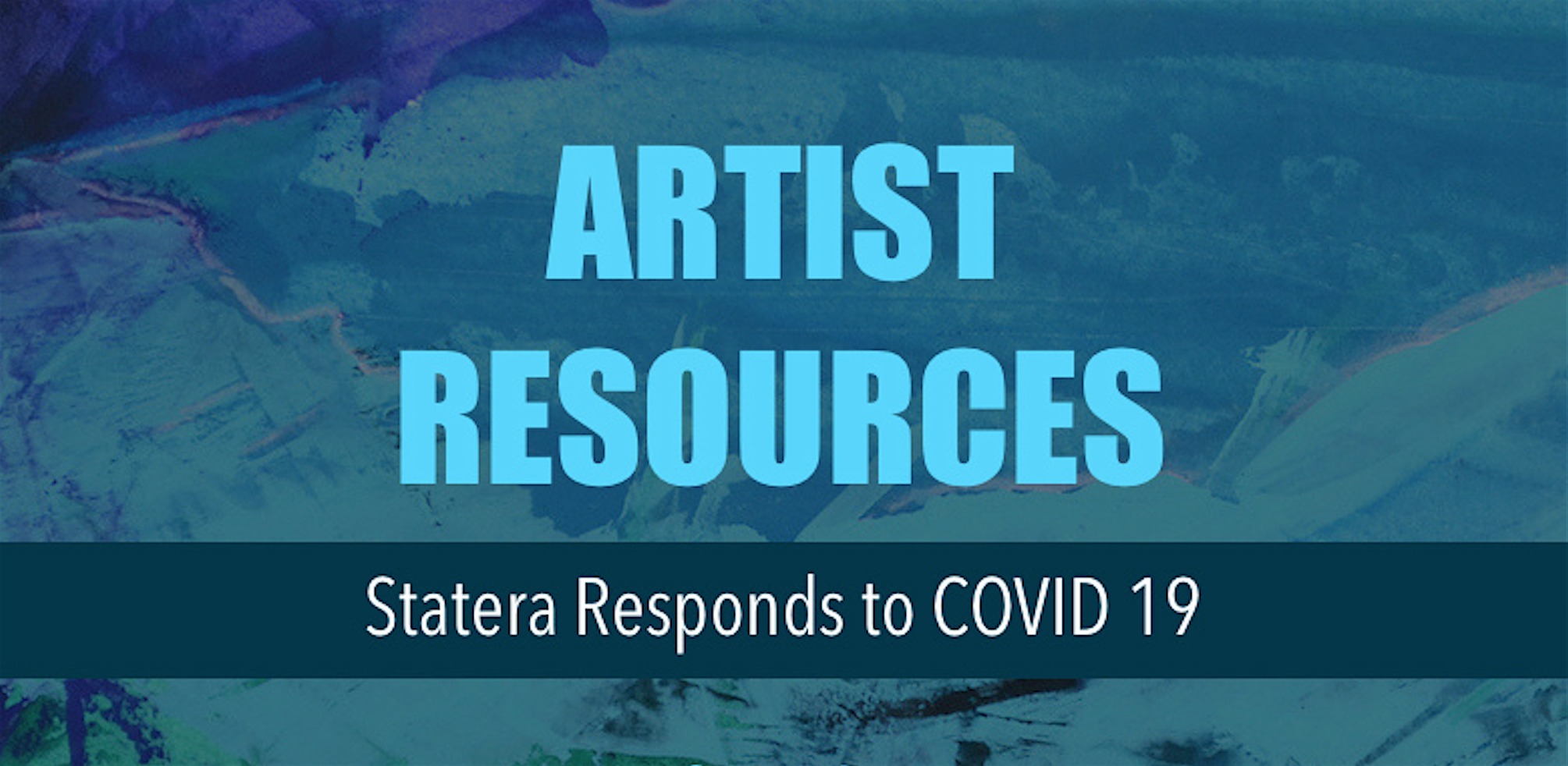

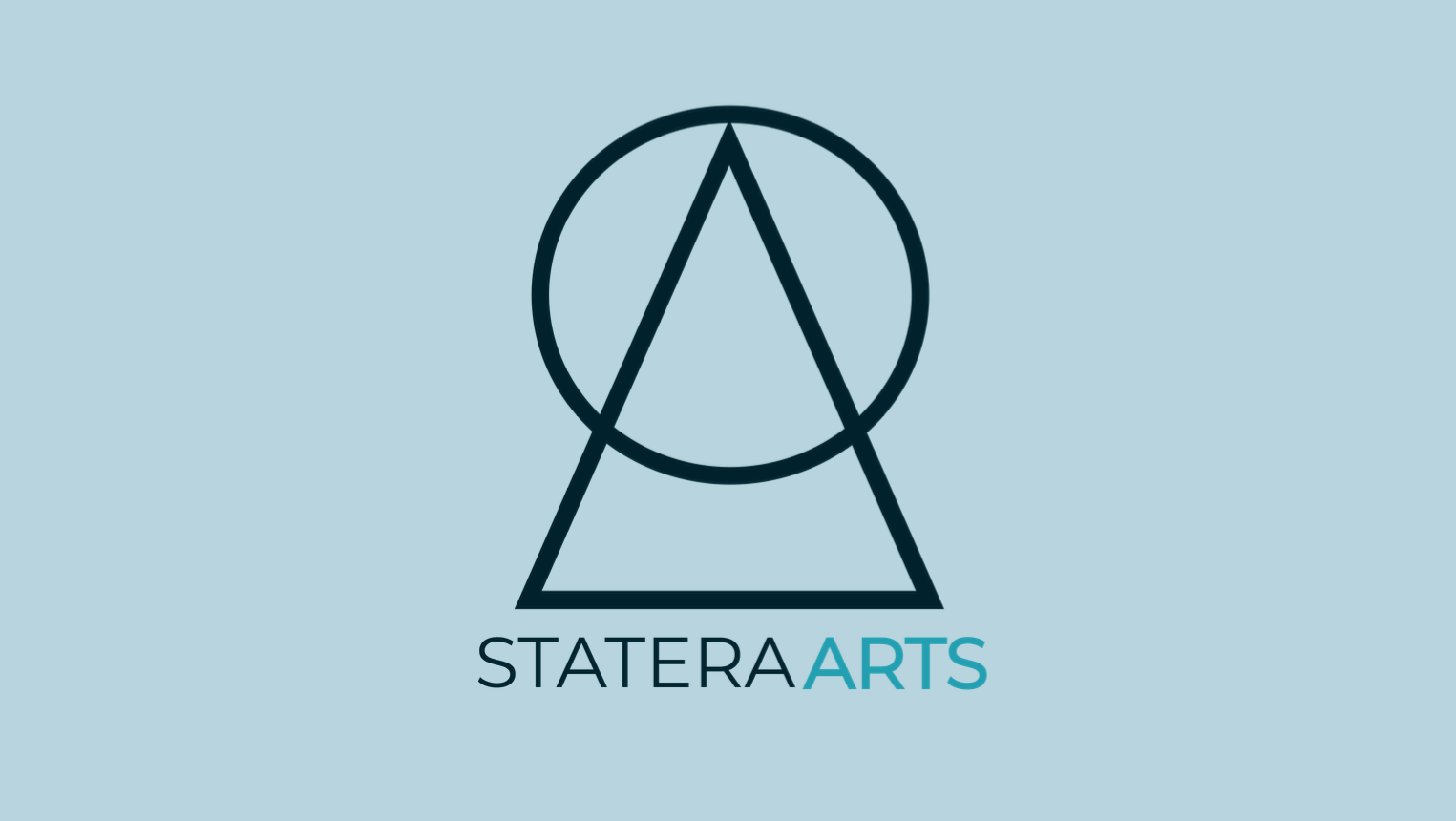
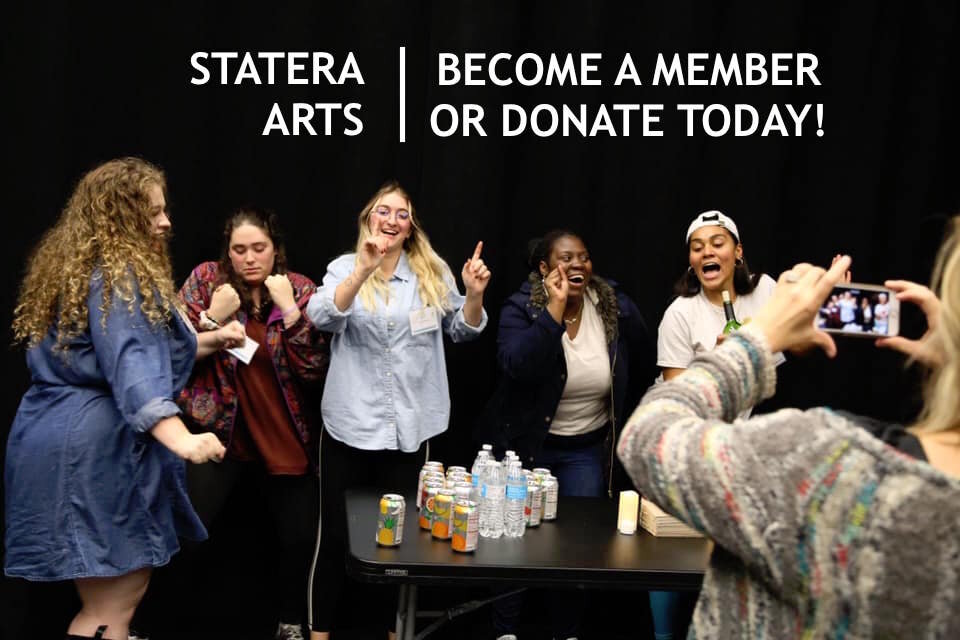

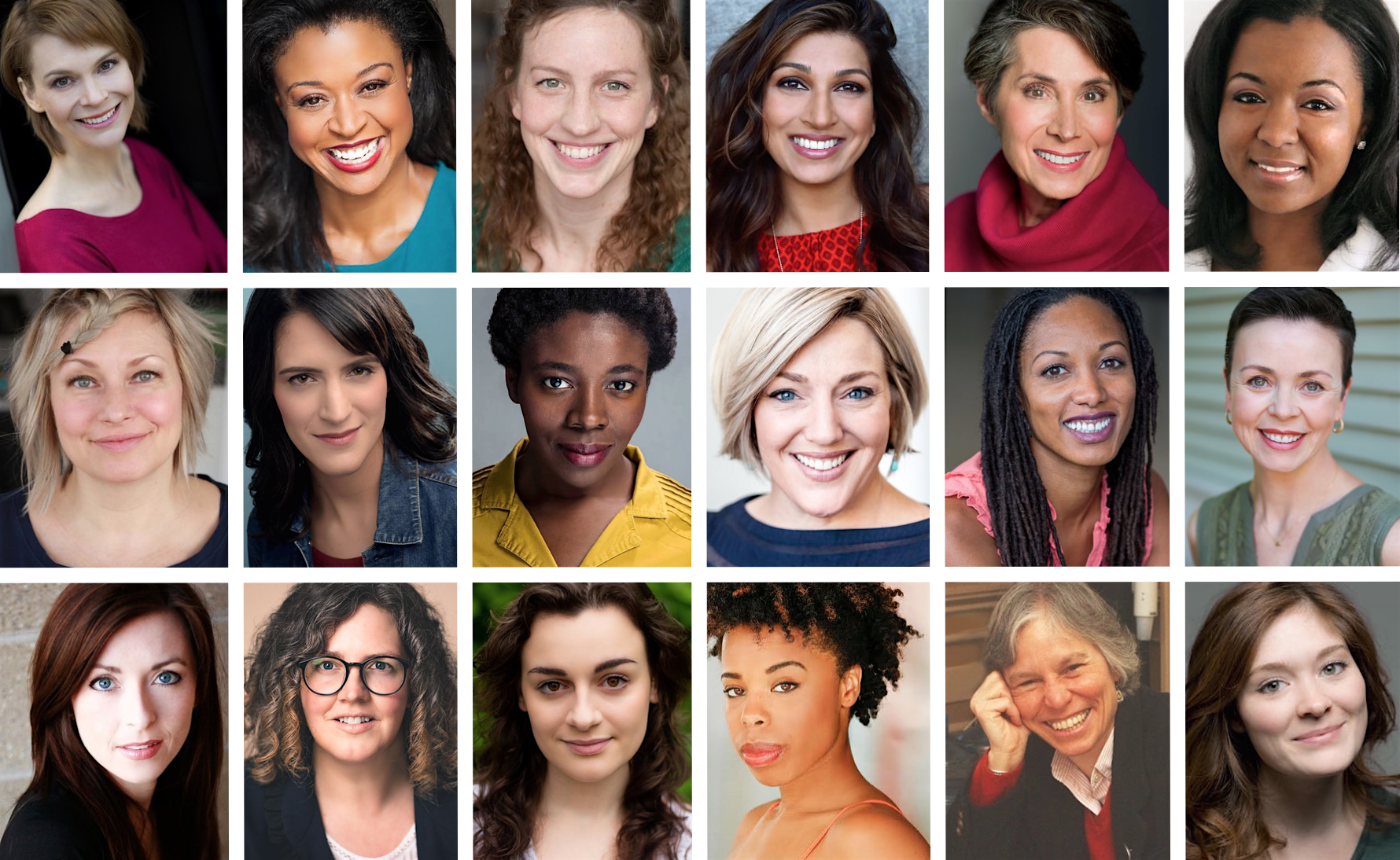
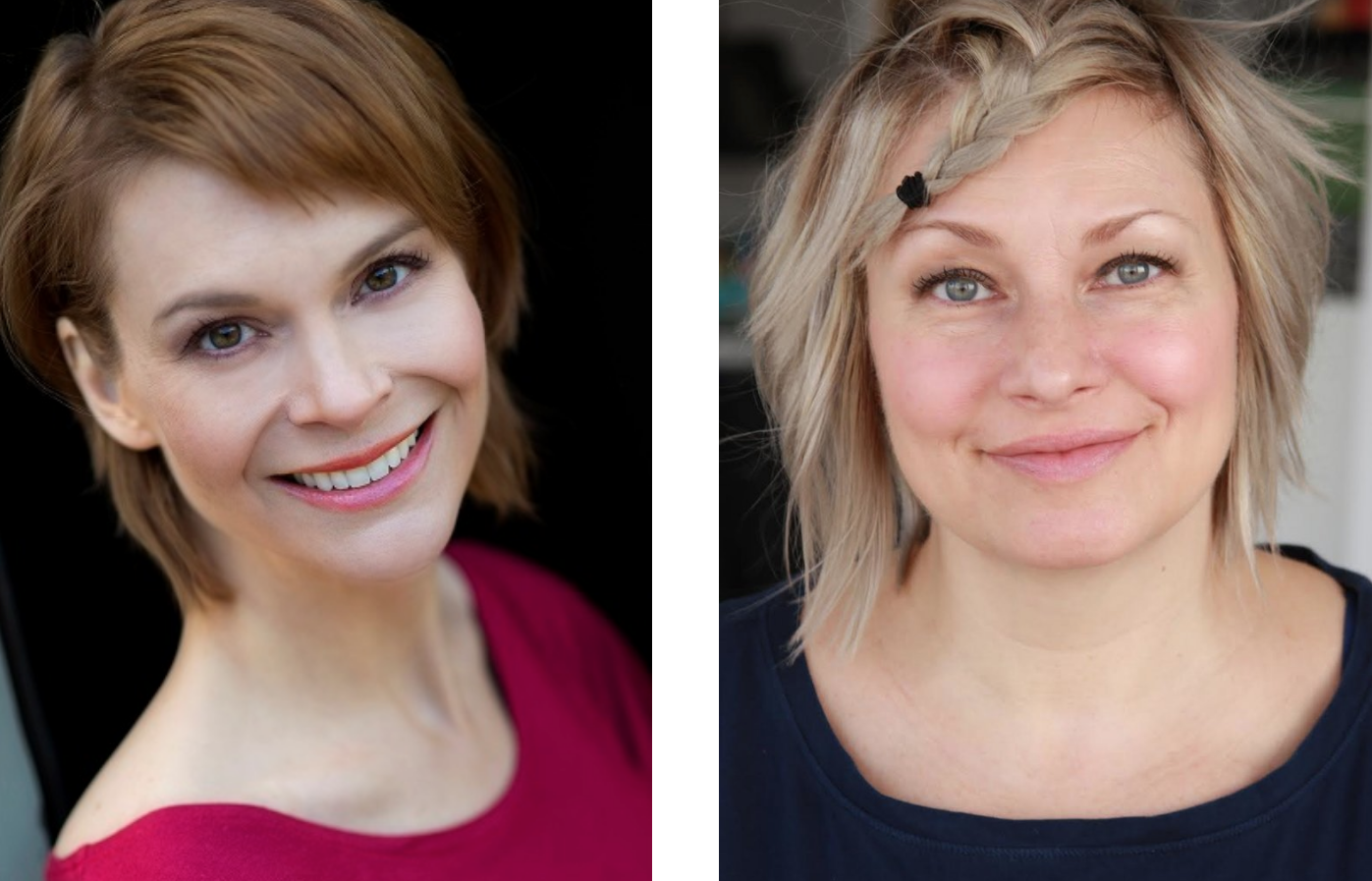




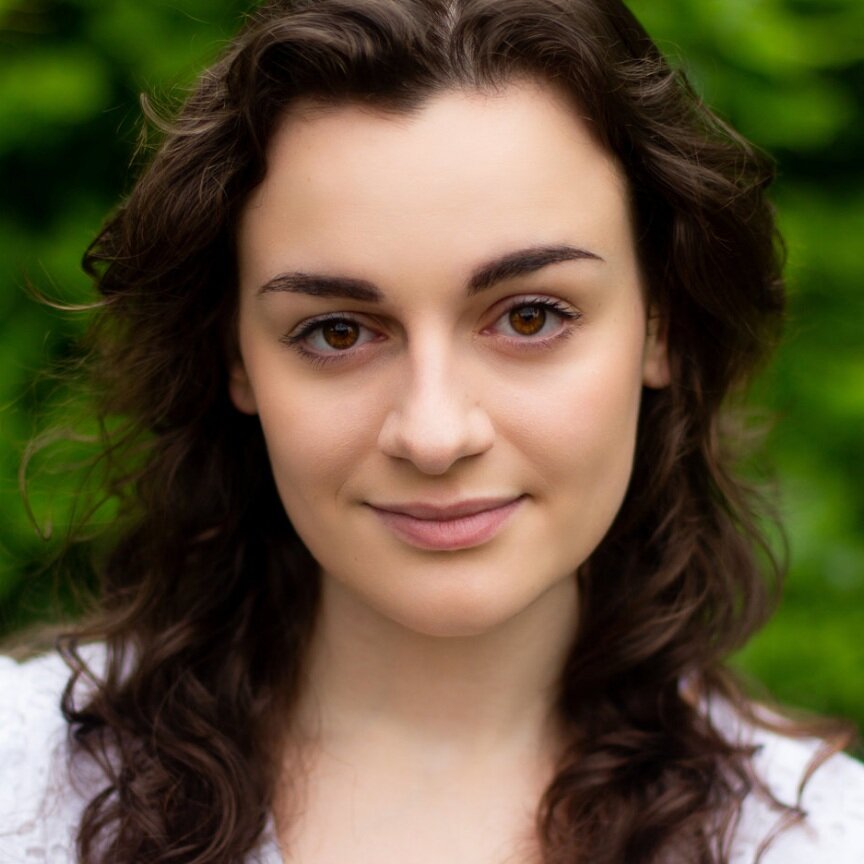
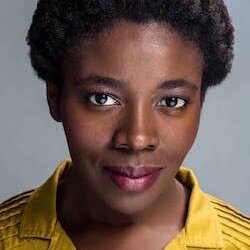



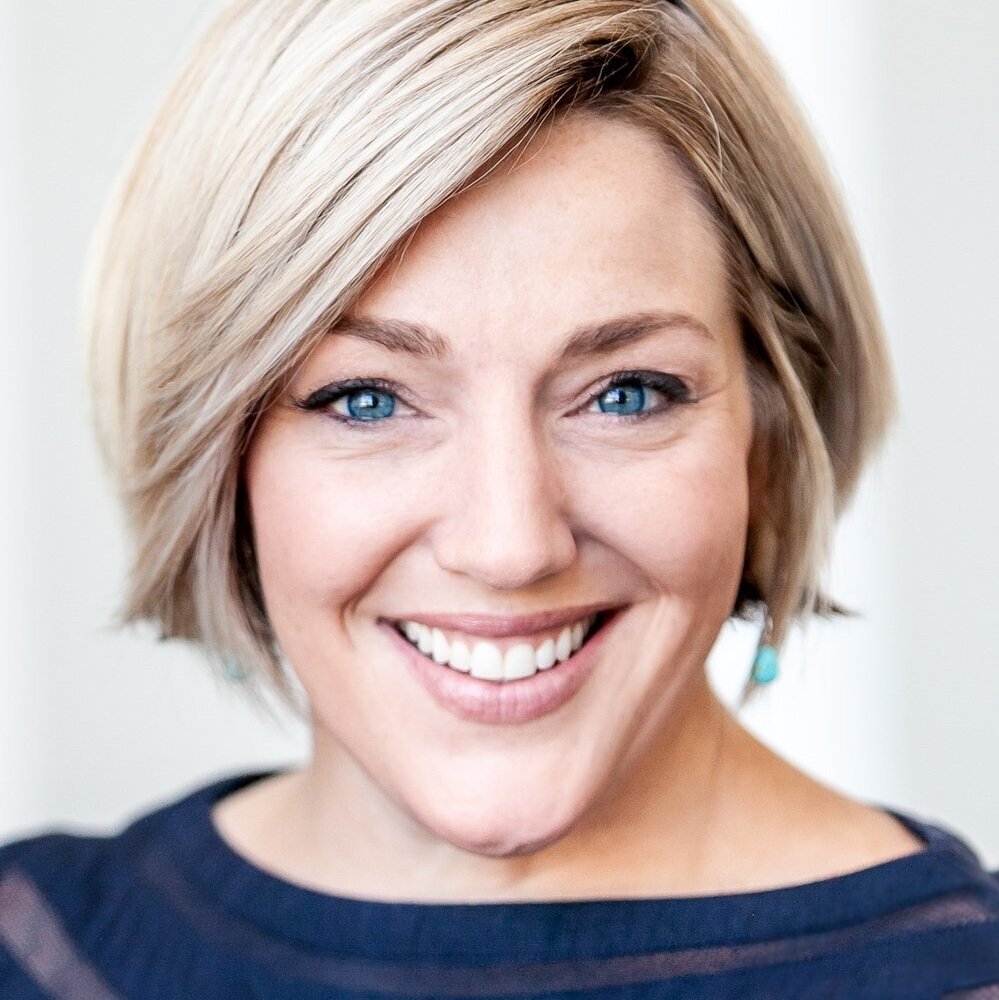

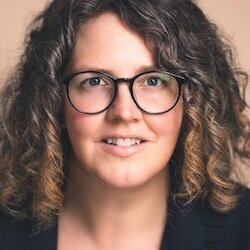



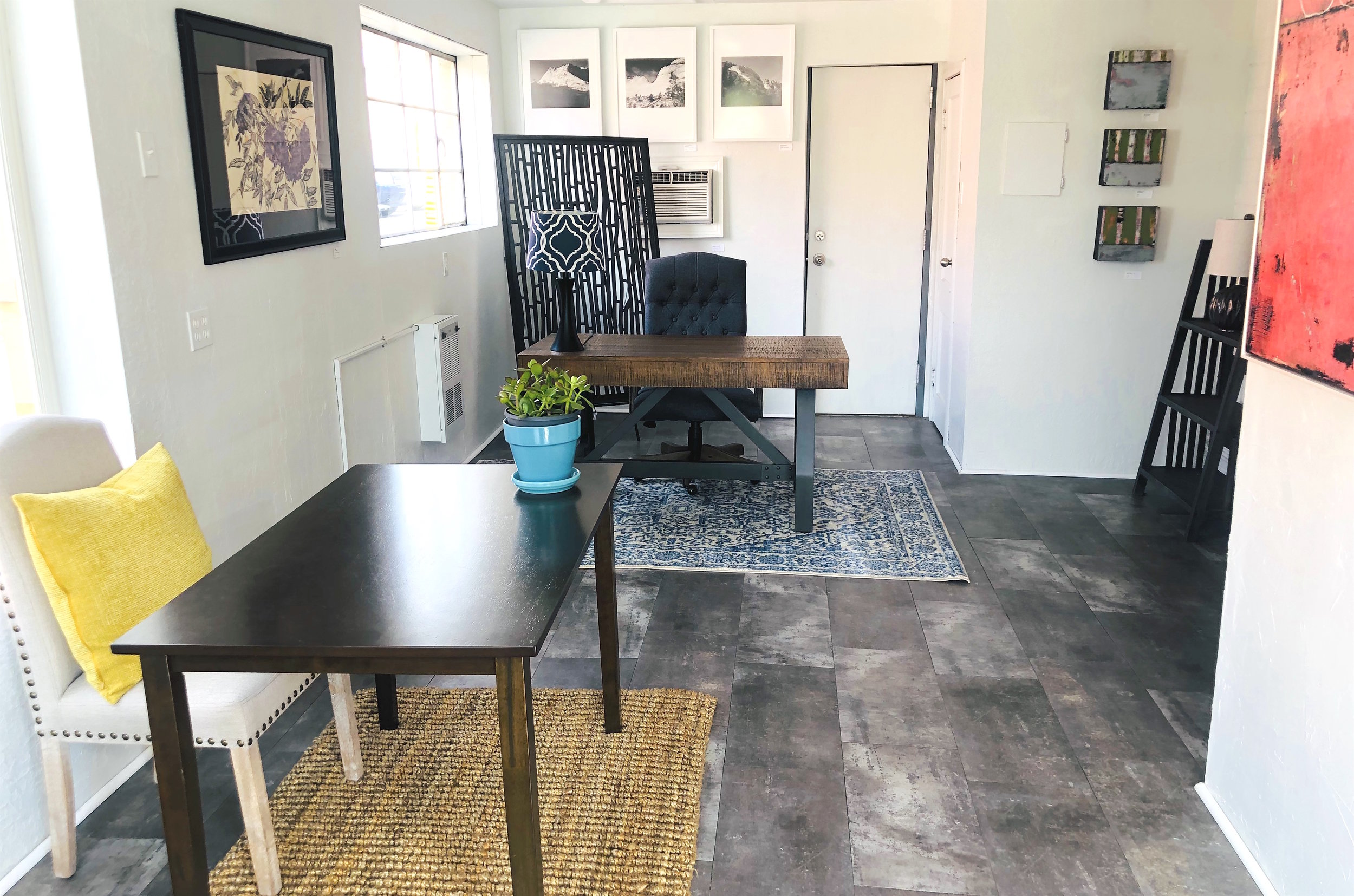


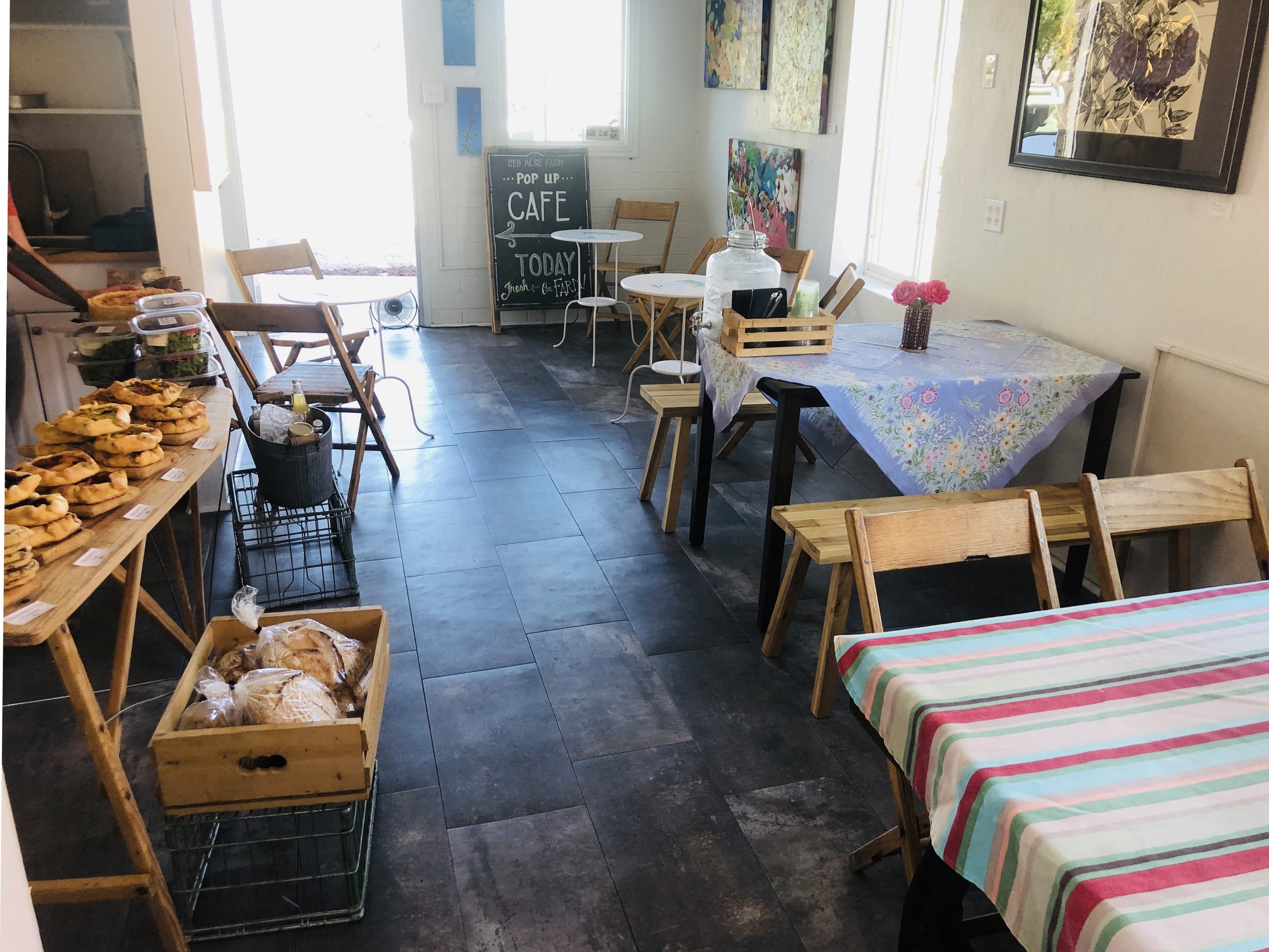

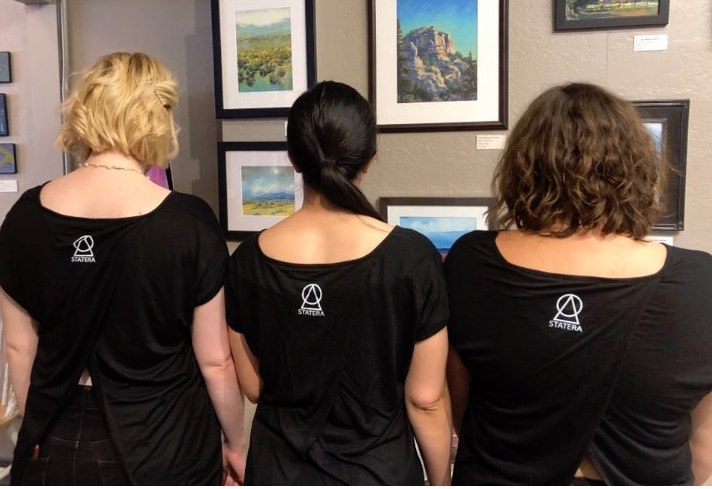
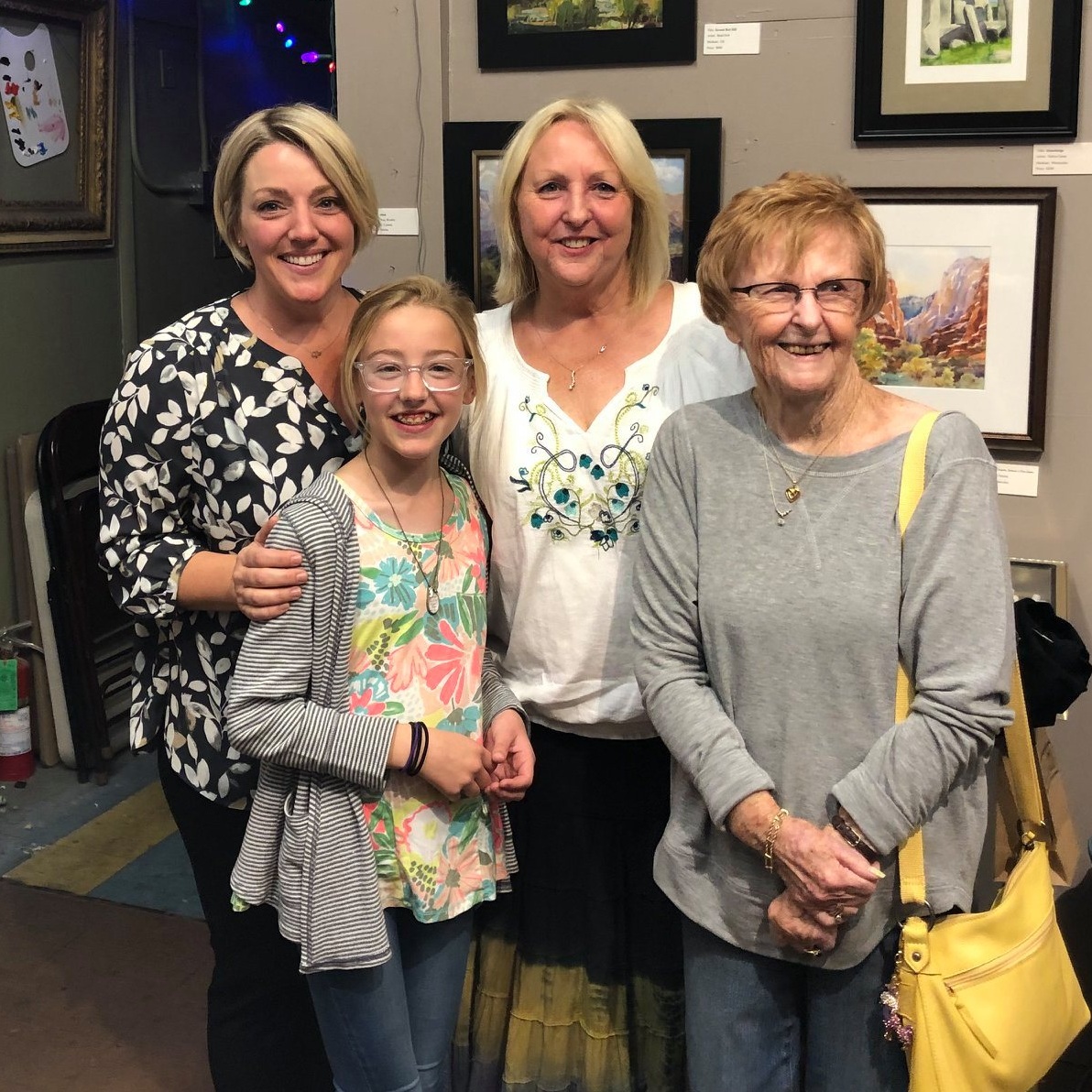
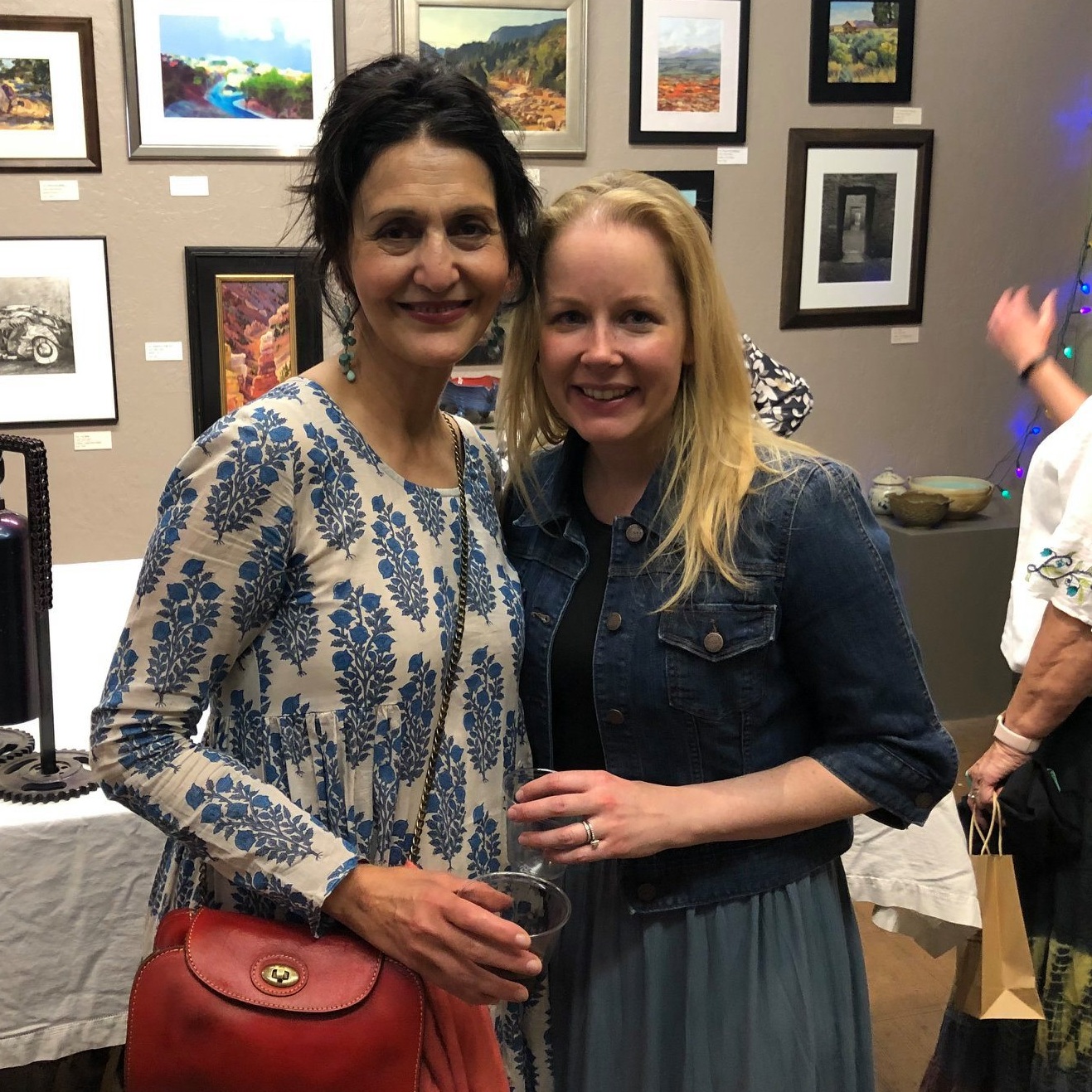
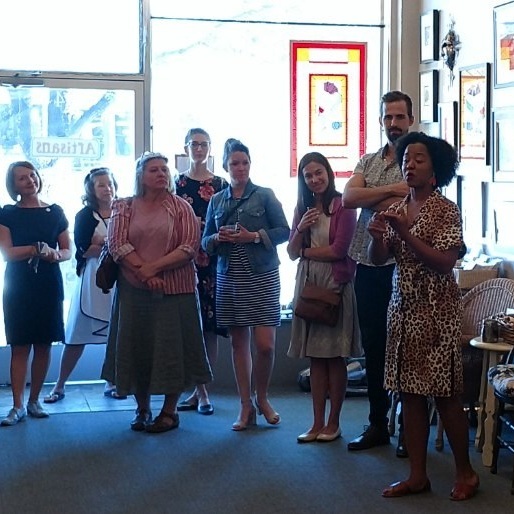
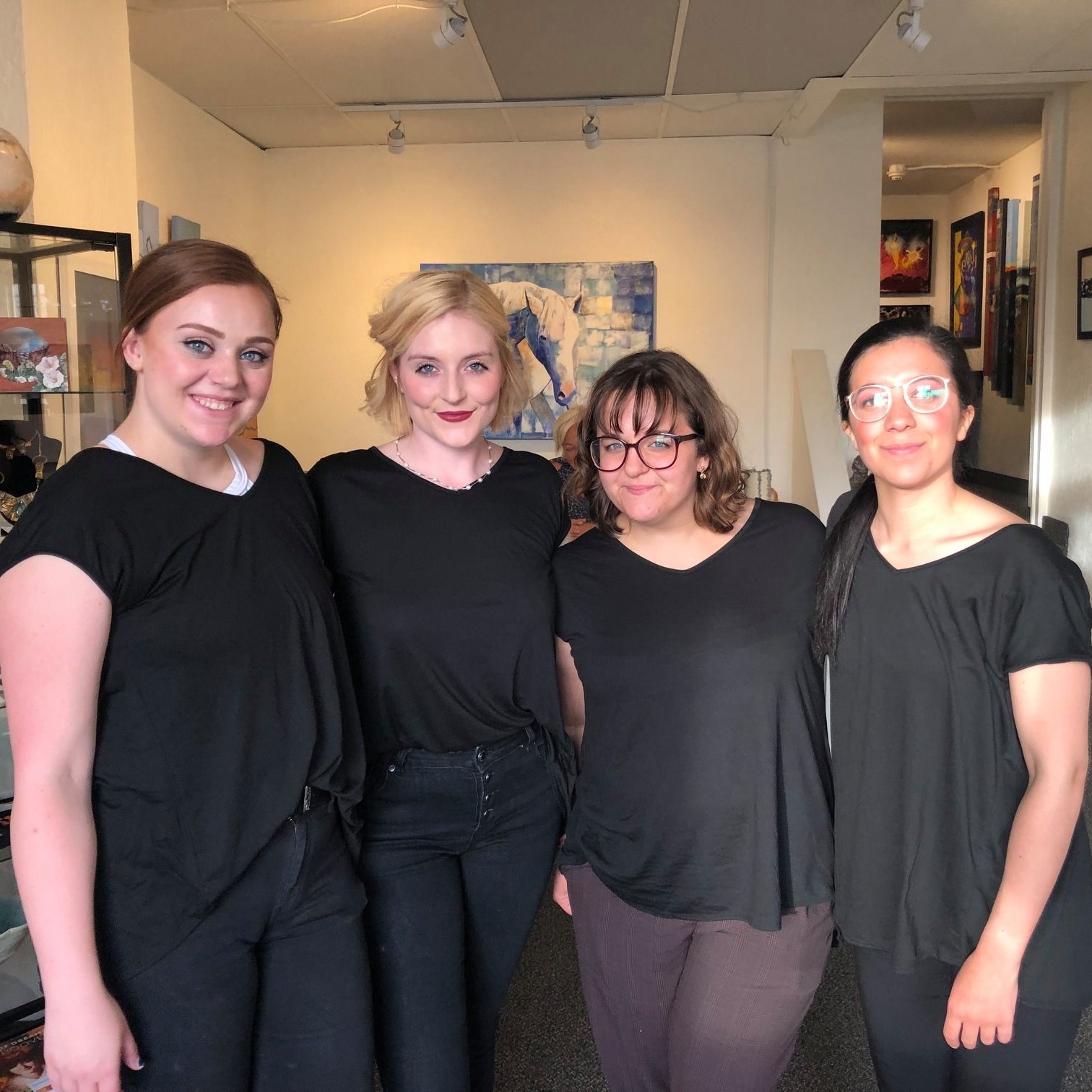
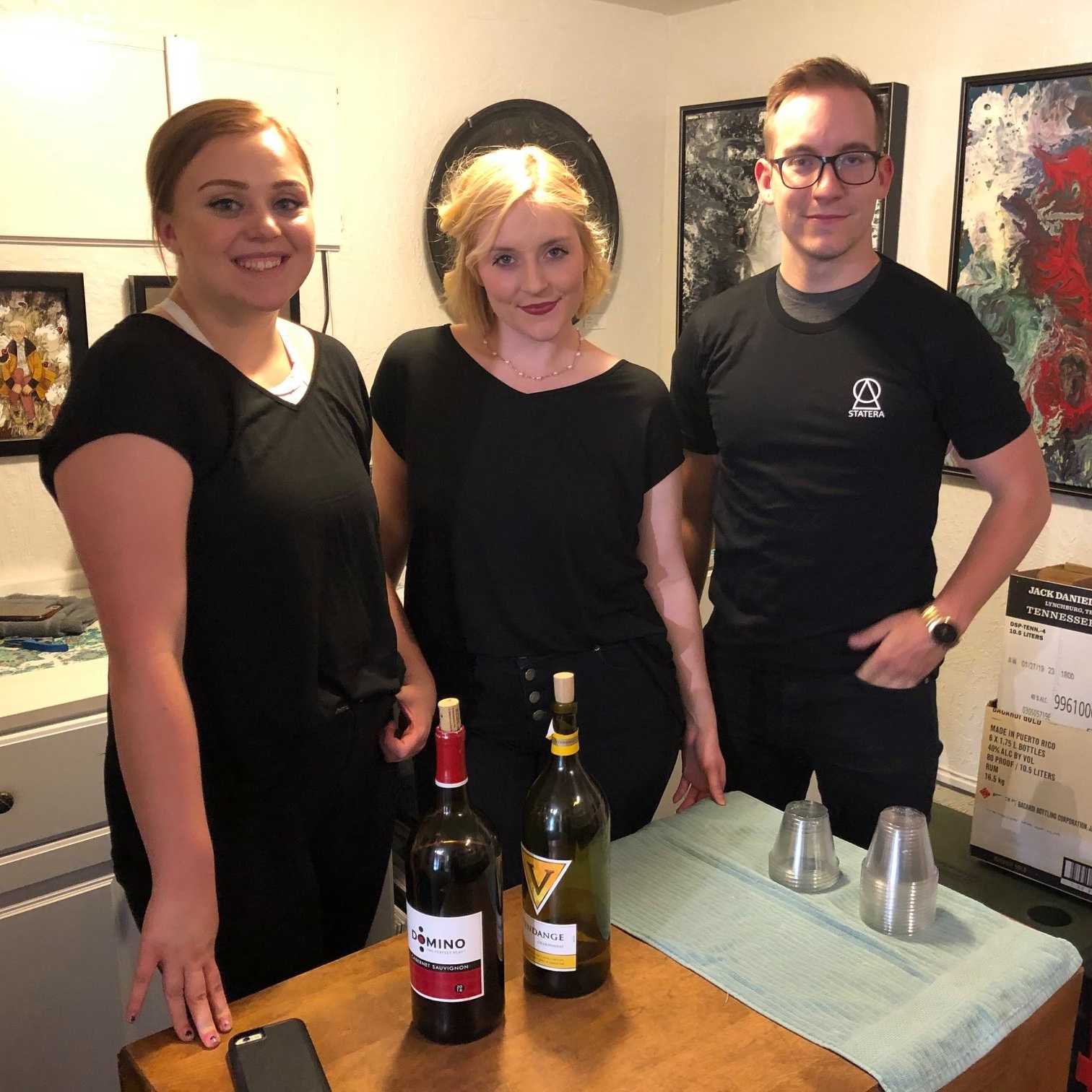
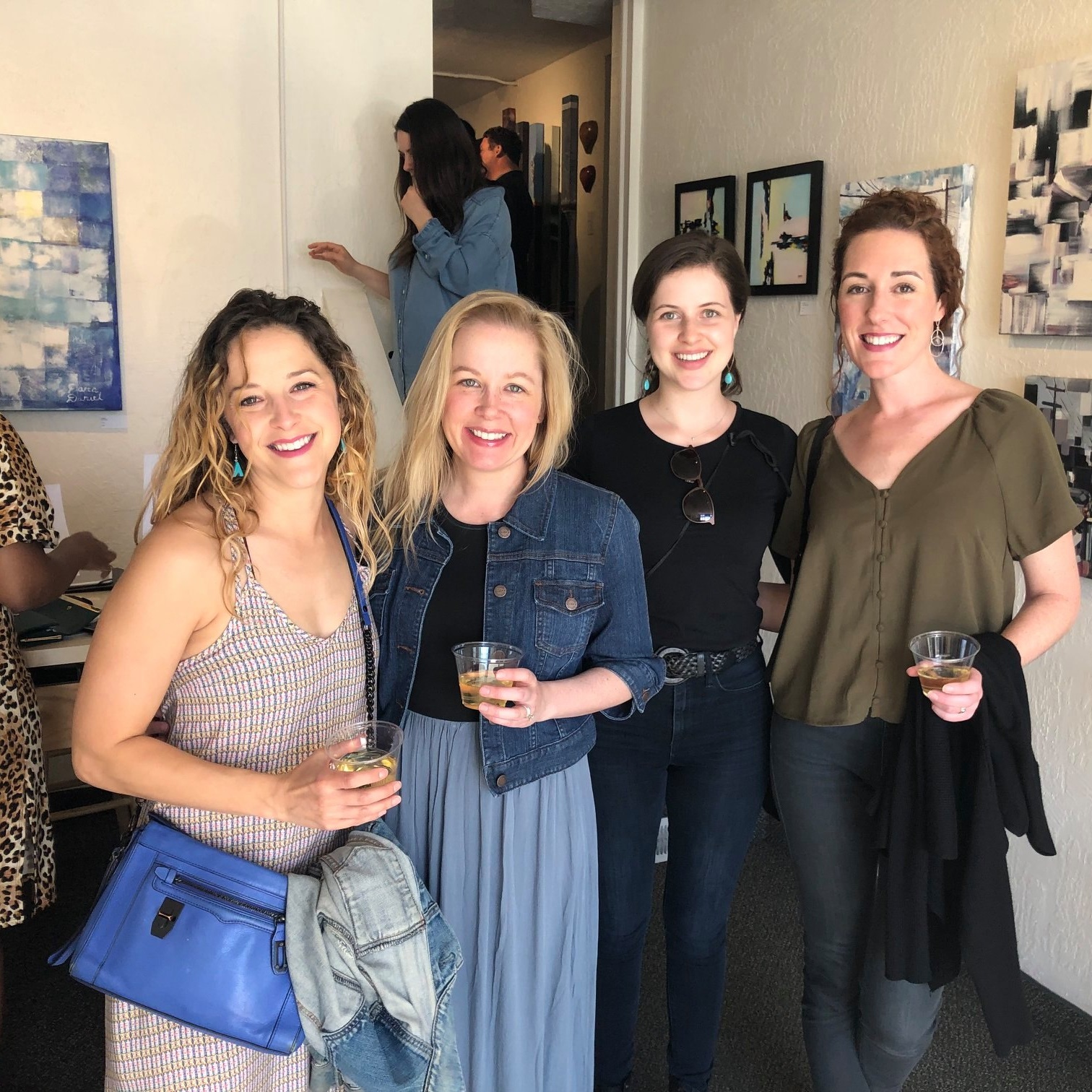
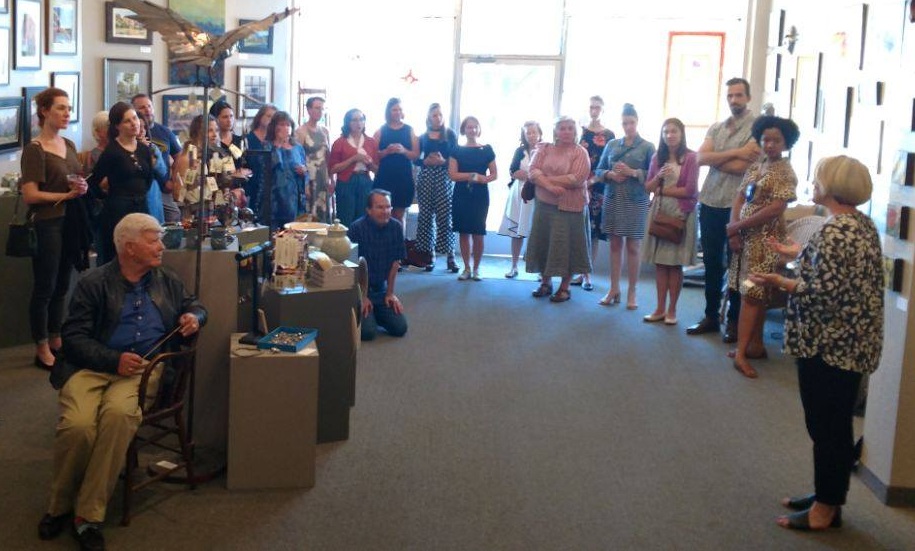

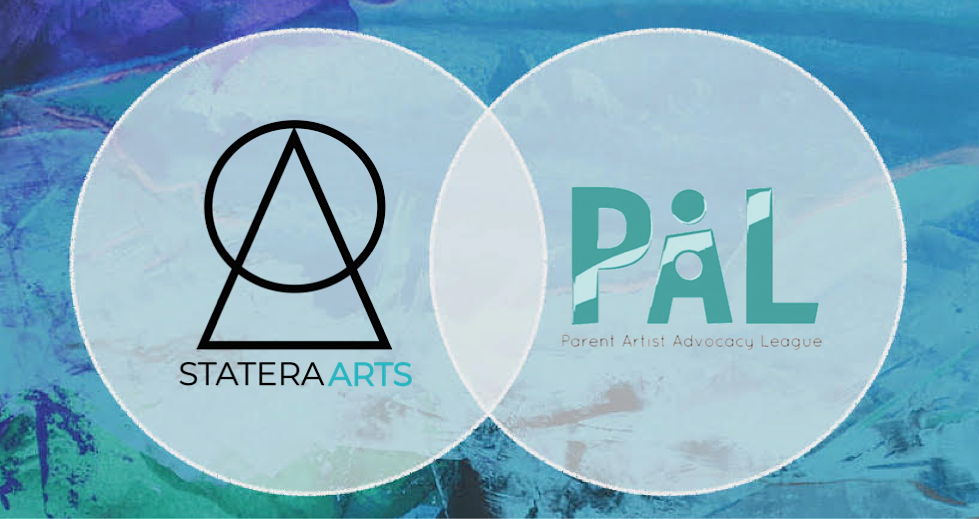
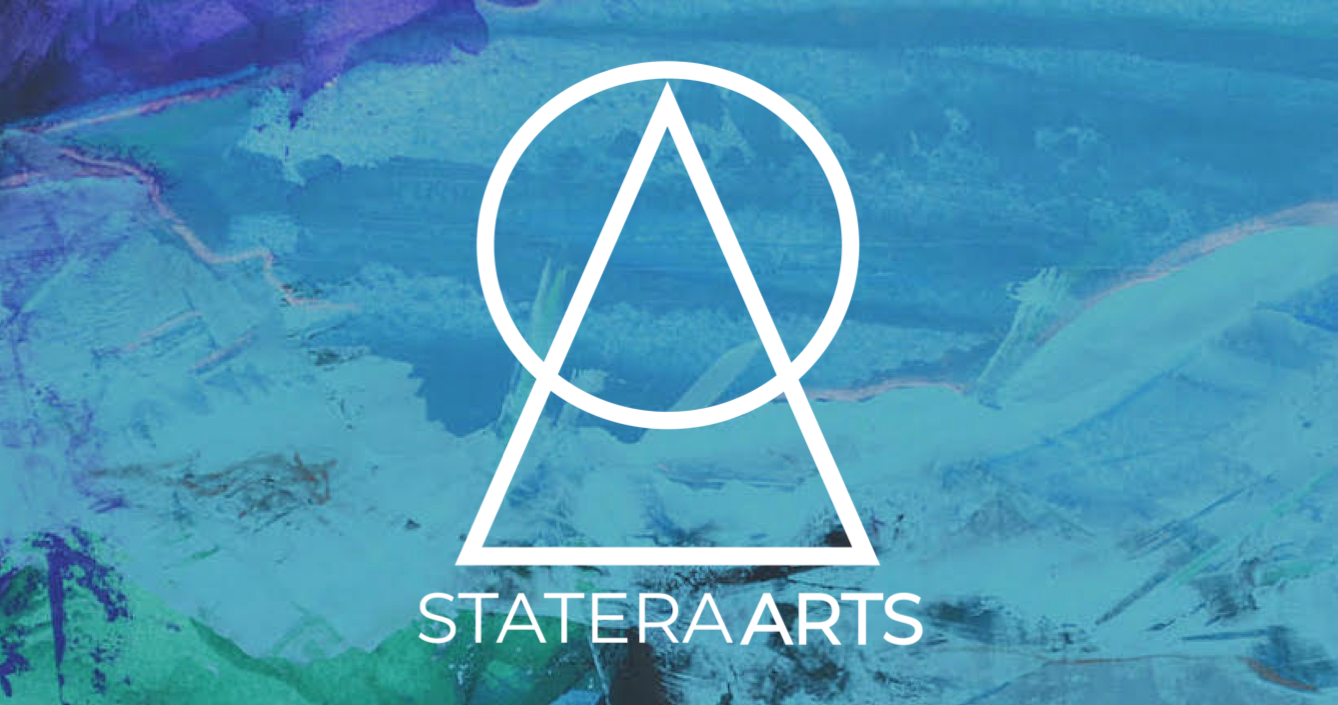

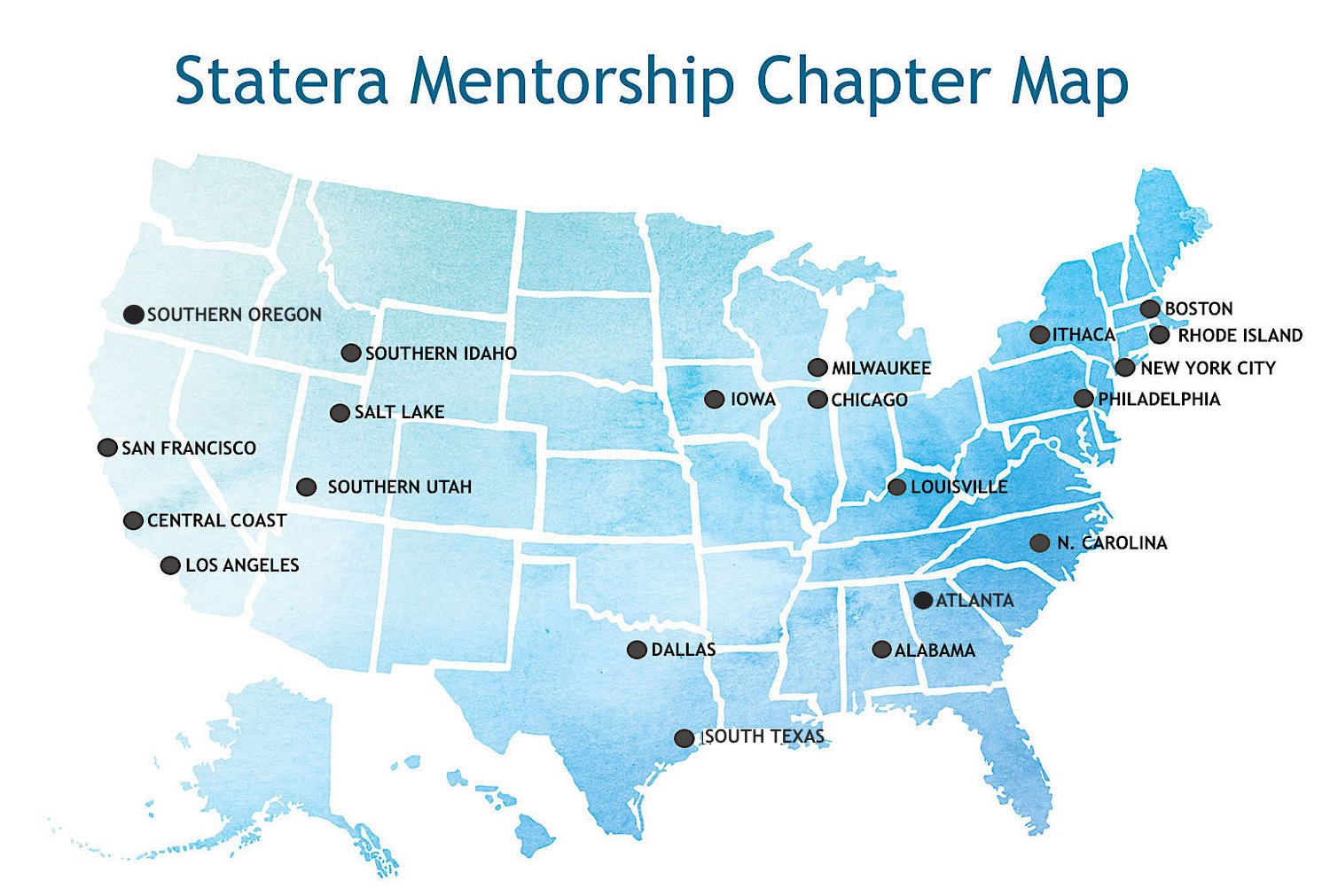
-copy.jpg)
.jpg)
-copy.jpg)
-copy.jpg)
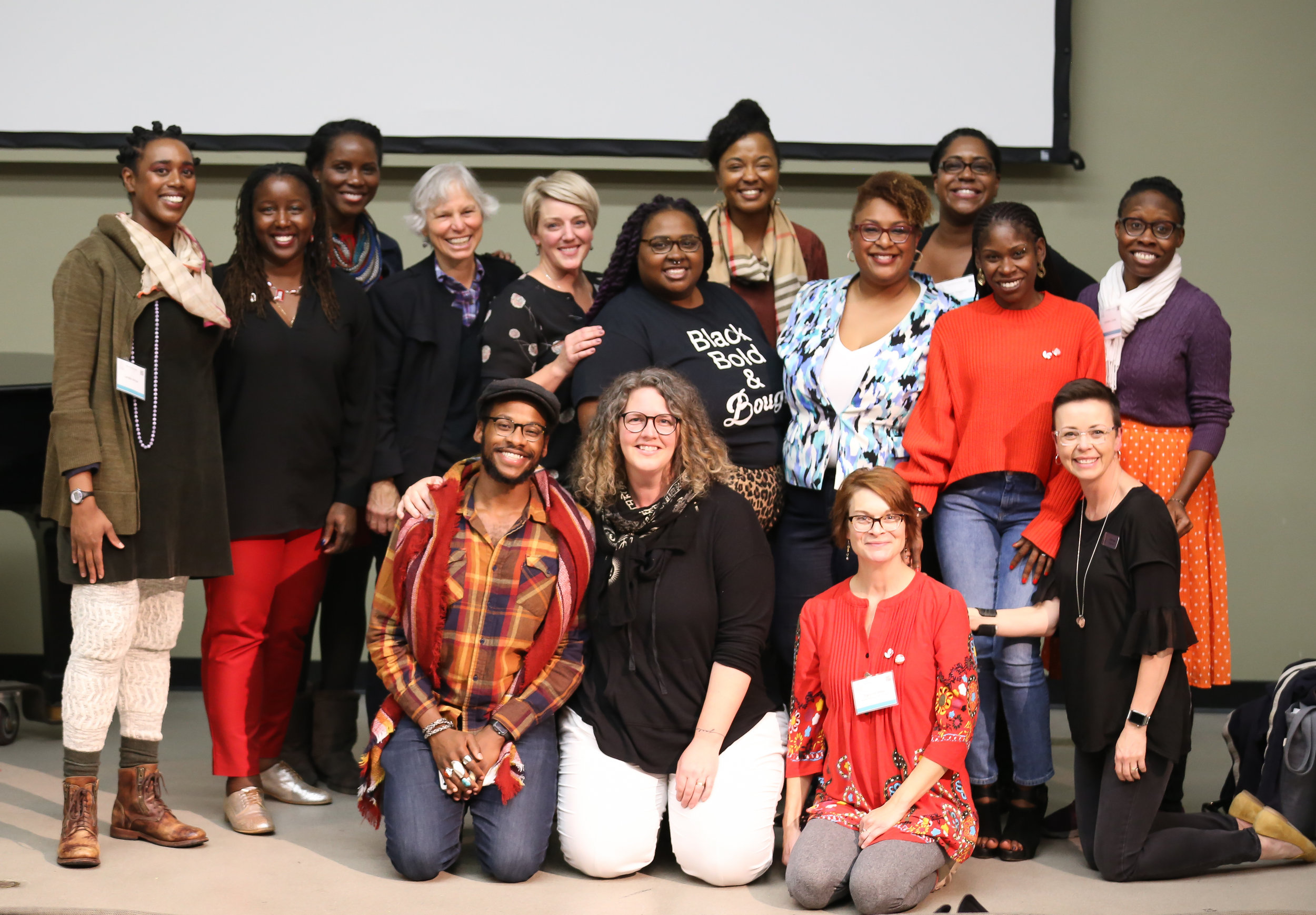
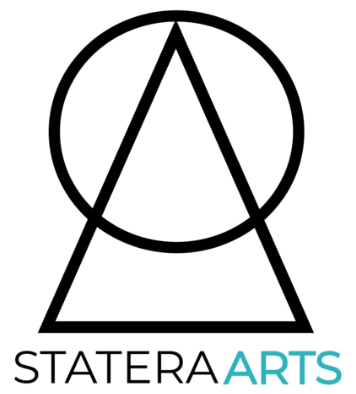
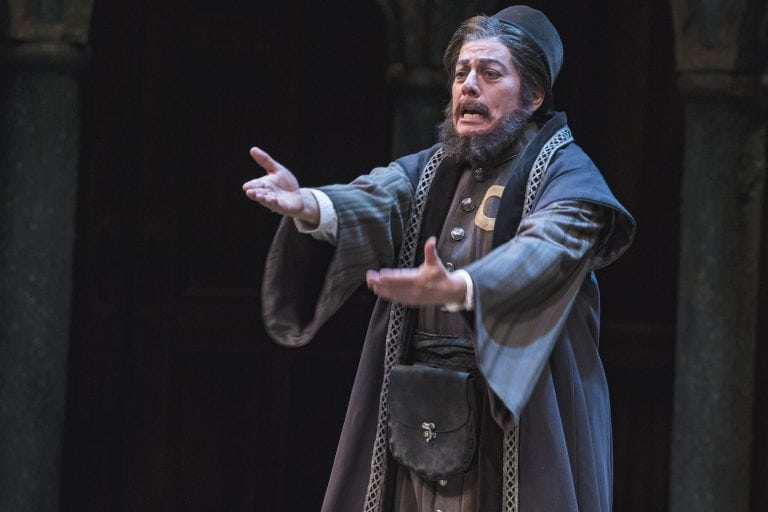

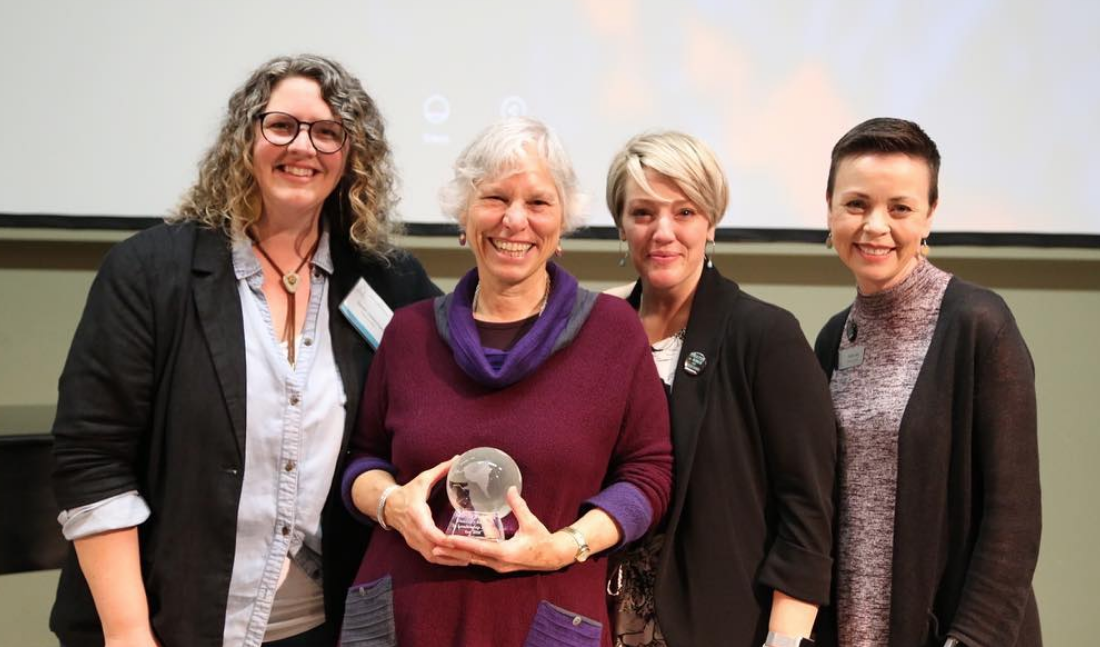
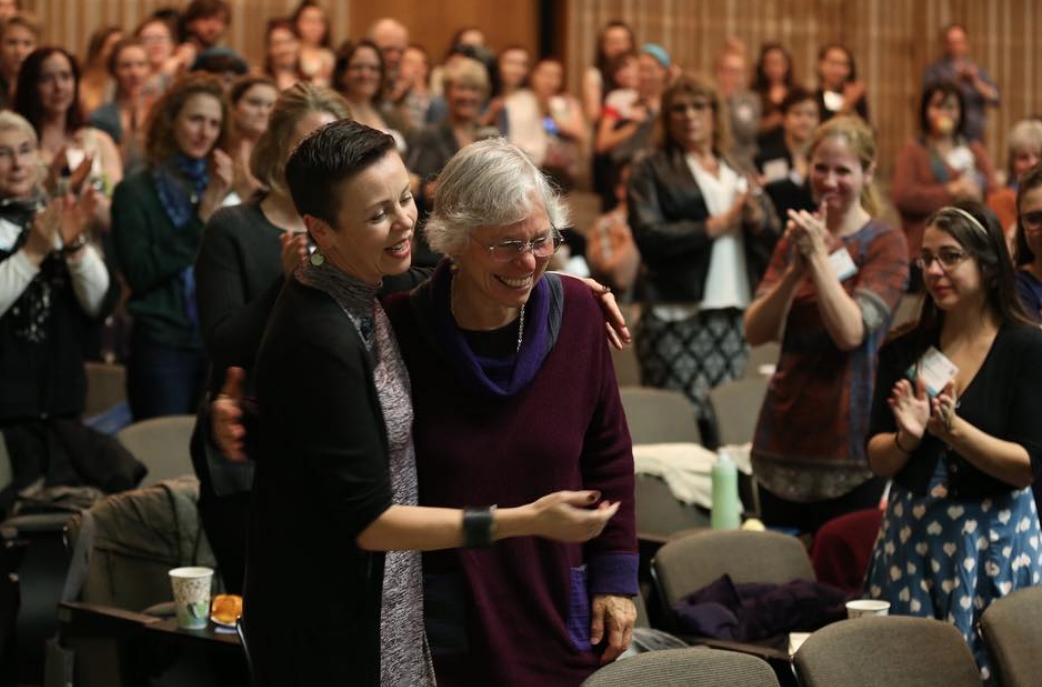
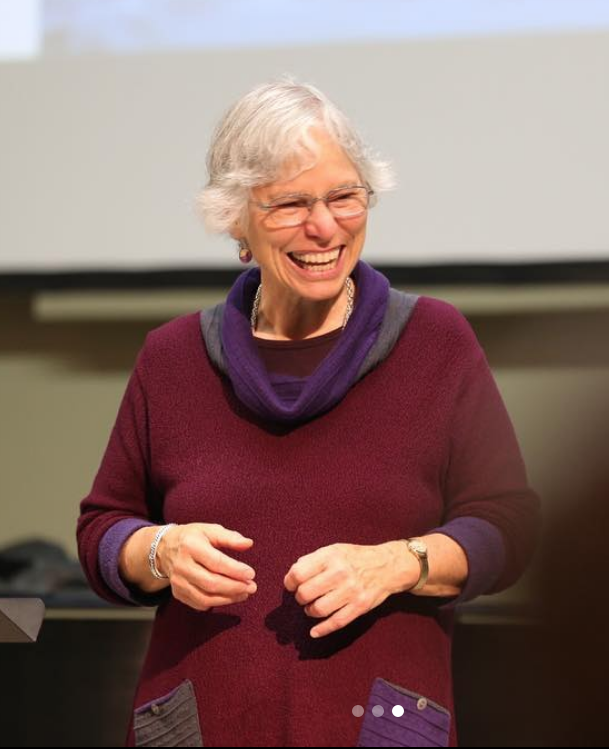




.jpg)

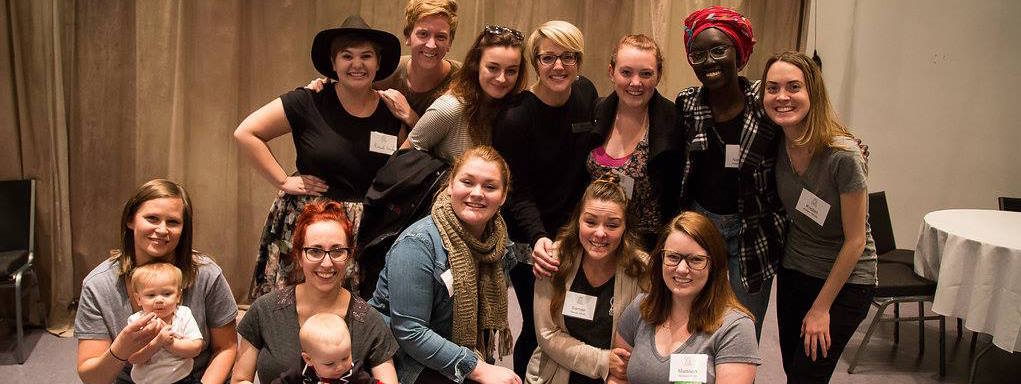
.jpg)
